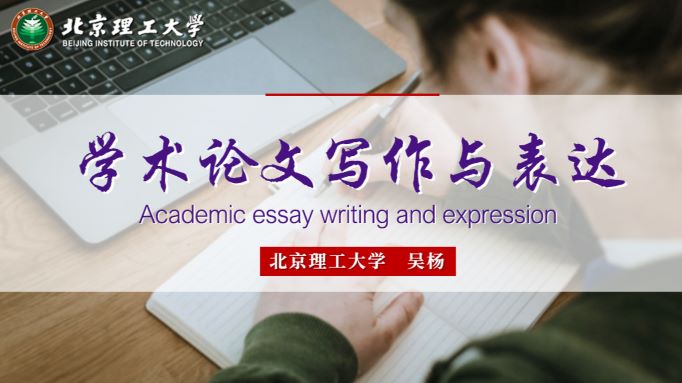
当前课程知识点:Research Methods in Tourism Studies > Week 4 Research Design II > 4.3 Using Mixed Method > 4.3.2 Sustainabble tourism development (2)
返回《Research Methods in Tourism Studies》慕课在线视频课程列表
返回《Research Methods in Tourism Studies》慕课在线视频列表
这是本研究的方法部分。
本研究旨在开发一套衡量社会
与经济旅游可持续性的量表。
在这个案例当中,我们遵循了Churchill开发的程序。
实际上,我们在此基础上做了一些改变,增加了一些步骤。
在我们的程序中,总共有十个步骤。
第一个是确定研究构念的范围。
在此情况下,我们使用文献检索来明确
社会和经济可持续发展的领域。
第二步是生成测项的样本。
在这种情况下,我们使用文献搜索
和深度访谈来生成测项池。
第三步,针对精简测项和设计问卷,
我们使用专家小组法。
在专家组中,有五位是大学的教师,
他们都是跨文化研究领域的专家,特别了解中国文化。
我们通过使用前测研究完善我们的问卷,
也得到了一些反馈建议。
所以,我们修改了相应的内容。
第四步是收集数据,主要是用了调查法,
通过电话访谈。
第一步去探索这些项目或测量的维度。
使用探索性研究方法(EFA)
我们还使用验证性因子分析(CFA)来确认这些维度,
从EFA产生的维度,我们还使用不同的技术
来确保量表有一个良好的信度和效度。
最后一步,评估因子结构的稳定性。
我们想知道,我们从EFA
和CFA得到的测项结构是否足够稳定,
是否会因样本量不同或样本不同而发生变化。
在这种情况下,我们将样本随机分为了两部分。
我们在子样本中
在主样本中重复相同的步骤,以确保(测项)结构保持不变。
这是我们混合方法研究的定性部分,
主要包括深度访谈。
事实上,为了获得业内人士的专业意见,
我们采访了12位业内人士,
他们是香港旅游业的主要利益相关者,
包括旅游行业委员会、
旅游发展局、优质旅游服务协会,
也包括海洋公园、迪士尼乐园等大型旅游景点,
以及当地居民和
原中国国家旅游局等最重要的利益相关者。
他们都为我们的测量提供专业的建议。
对于定量部分,我们从数据收集开始。
对于混合方法,我们采用了电话采访
和电脑辅助的电话采访。
在这种情况下,电话(采访)的总数是53000人次。
最后,我们有1839个完整的采访,
这对我们做量表开发来说已经足够了。
这是研究结果。
第一部分是所有被调查者的人口统计概况。
因此,在这1839名受访者中,我们询问了信息
他们有关性别、婚姻状况、受教育水平、工作状态、
就业行业以及收入等信息。
这是我们的主要发现。
这是我们通过不同程序后开发了所有的维度,
得到了用来表现社会和经济的可持续性的维度。
特别是在社会方面,我们发现了三个主要的维度,
包括主客冲突,社会宽容和社会接纳。
在经济方面,我们发现了发展控制,
经济积极性和个人福利三个维度。
这是我们在文章中呈现的表格,上面显示了每个因子下的所有测项。
这是社会方面的。
这是经济方面的。
这是讨论部分。在这项研究中,实际上是在这两个研究中,
我们确定了旅游中社会和经济可持续发展的六个维度。
这是这一领域的开创性研究之一,提供了很多细节,
考虑了不同利益相关者的一些建议。
有了这些发现,我们可以帮助旅游规划者
和决策者评估当前旅游业的发展状况,
并制定适当的国家战略来支持旅游平衡发展。
另外,我们认为应该每一年都进行调查,
不断监测旅游目的地所处的发展阶段。
这是结论部分,
在这项研究中,我们遵循十个步骤的量表开发程序,
并试图开发严谨的社会
和经济方面的旅游可持续性的量表。
我们总共有1839名受访者。
我们用这些数据进行了分析,产生了六个维度。
代表社会和经济方面。
本研究特别探讨了评估社会
和经济可持续性的开拓性工具。
同时,也提供了一定指导,关于旅游决策者
和经营者提供了
在旅游目的地的可持续发展。
这个部分的内容到此结束。
希望大家可以更好地了解不同的研究方法,
以及如何根据不同的方法开展不同的研究。
谢谢大家。
-1.1 Research Question and Research Objectives
--1.1.1 Student interview before class
--1.1.2 The starting point: question
--1.1.3 What is a good research question?
--1.1.4 Ways to find a good research question
-1.2 Title Design
--Acticle: Leisure & Travel as Class Signifier: Distinction Practices of China's New Rich
--Discussion: Why do we research?
-1.3 Literature Retrieval Method and Literature Databases
--1.3.1 Common literature retrieval method
--1.3.2 Common literature search database
-1.4 Information Collection and Academic Journals in Tourism
--1.4.1 Academic journals in tourism research
--1.4.2 Literature collection methods and principles
-1.5 Literature Reading
--1.5.2 Overcoming obstacles in literature reading
--Week 1 quiz
--Discussion: What difficulties have you encountered in reading literature?
-2.1 Philosophical Bases of the Two Approaches
--2.1.1 Philosophical bases of the two approaches
-2.2 Differences between the Two Approaches
--2.2.1 Differences between the two approaches
--Article: Does tourist–host social contact reduce perceived cultural distance?
-2.3 Be Aware of Your Own Research Views
--2.3.1 Be aware of your own research views
--Discussion: How to choose research method?
-2.4 Research Example: Social Tourism
--2.4.1 What is social tourism?
--2.4.2 Established frameworks on social tourism
--2.4.3 Major research findings on social tourism
--2.4.4 Major findings of social tourism research
--2.4.5 Opportunities and challenges for social tourism
--Week 2 quiz
- 3.1 Key Procedures in Qualitative Approach
--3.1.1 Key procedures in qualitative approach
-3.2 Qualitative Data Collection and Analysis
--3.2.1 Key procedures and data collection methods in qualitative approach
--3.2.2 Data collection and analysis in qualitative approach
--3.2.3 Data analysis in qualitative approach
-3.3 Case Study and Content Analysis
--Discussion: Have you ever used a qualitative approach in your research?
-3.4 Using Coding and Themes in Qualitative Research
--3.4.1 Using coding and themes in qualitative research(1)
--3.4.2 Using coding and themes in qualitative research(2)
-3.5 Using Conceptual Framework in Qualitative Research
--3.5.1 Using conceptual framework in qualitative research(1)
--3.5.2 Using conceptual framework in qualitative research(2)
--Article: Tourist typology in social contact: an addition to existing theories
--Week 3 quiz
--Discussion: How to ensure the reliability and validity of qualitative study?
-4.1 Using Questionnaires in Quantitative Research
--4.1.1 Make an effective literature review and research method design
--4.1.2 Learn to write powerful findings and discussion
-4.2 Using Experiment in Quantitative Research
--4.2.4 Eye tracking experiment
-4.3 Using Mixed Method
--4.3.1 Sustainabble tourism development (1)
--4.3.2 Sustainabble tourism development (2)
--Article:Creating a scale for assessing socially sustainable tourism
--Week 4 Quiz
--Discussion: How to use quantitative methods to study tourists' reaction?
-5.1 Current Research Priorities
--5.1 1 A review of hospitality research
--5.1.2 Impact of information technology on hospitality and tourism research
-5.2 Multi-Level/ Multiple Sources of Date Collection
--5.2.1 Experimental design (1)
--5.2.2 Experimental design (2)
--5.2.3 Multi-level/multiple sources of data collection
-5.3 Mixed Method and Interdisciplinary Research
--5.3.2 Interdisciplinary research
--Article: The meanings of destination: a Q method approach
--Discussion: Can you talk about your understanding of research methods?
-5.4 Using Delphi Method in Research Design
--5.4.1 What is the Delphi method?
--5.4.3 Characteristics of the Delphi method
--5.4.4 Predicting the future of wine tourism
--Week 5 quiz
--Discussion: Philosophical basis of research methods
-6.1 Journal Publication
--6.1.1 How to publish in the top journals? (1)
--6.1.2 How to publish in the top journals? (2)
--6.1.3 How to publish in the top journals? (3)
--6.1.4 How to publish in the top journals? (4)
--Article: Analyzing the economic sustainability of tourism development: evidence from Hong Kong
-6.2 Academic Ethics
--6.2.2 Student interview after class
--Week 6 quiz
--Discussion: Academic publication and academic ethics
--Final quiz
